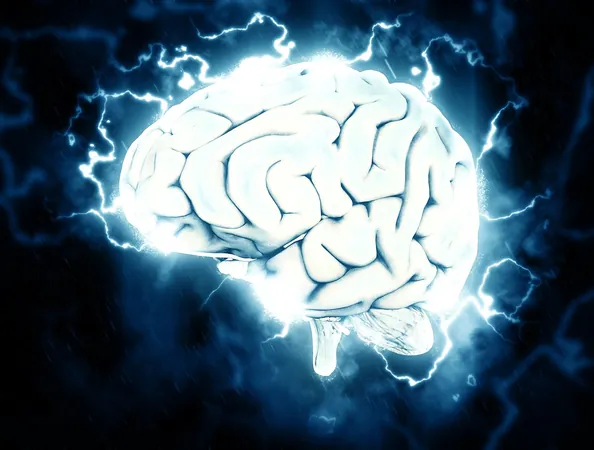
Shocking New Study Reveals Link Between Blood Vessel Dysfunction and Memory Loss in Seniors!
2025-01-14
Author: Mei
A groundbreaking study led by researchers at the University of Southern California (USC) has unveiled a startling connection between mild cognitive impairment and blood vessel dysfunction in the brain's temporal lobes—the critical region associated with memory. This research, which includes contributions from various universities, has significant implications not only for understanding dementia but also for potential therapeutic interventions.
The findings, published in the prestigious journal *Neurology*, show that issues with microvascular function may serve as an early warning sign of dementia, even in individuals without visible amyloid buildup in their brains. Senior author Daniel Nation, a professor at the USC Leonard Davis School of Gerontology, emphasizes the importance of these small vessels, stating, "We're studying the ability of these very small vessels to respond to stimuli and to dilate... Dysfunction in these blood vessels could signal an early stage of memory loss."
Blood Vessel Dysfunction: A Hidden Factor in Memory Impairment
The study analyzed a cohort of 144 older adults living independently in their communities. Participants underwent a series of tests, including neuropsychological assessments, blood sample collection, and magnetic resonance imaging (MRI) of the brain. A particularly intriguing aspect of the MRI protocol involved a breath-holding exercise designed to stimulate the dilation of blood vessels—a natural response vital for regulating oxygen levels in the brain.
Researchers specifically focused on the blood vessels that supply the temporal lobes, strategically located on either side of the head. Alarmingly, those volunteers exhibiting impaired vessel dilation were found to show significant cognitive deficits. "With this approach, we can pinpoint the problem to the blood vessels and their ability to dilate," Nation noted. He highlighted that this perspective shifts the traditional understanding of memory impairment, focusing less on Alzheimer's disease alone and more on the vascular health of the brain.
A Call for Comprehensive Diagnostics
The findings of this study raise crucial questions about current diagnostic methods for dementia. According to Nation, "There's an increasing realization that the main cause of dementia is not actually Alzheimer's disease; it's mixed pathology." He argues that concentrating solely on amyloid deposits limits our understanding of cognitive decline. The potential incorporation of this vascular assessment into diagnostic protocols could revolutionize the way dementia is identified and treated.
Arunima Kapoor, a graduate student at the University of California, Irvine and first author of the study, stresses the importance of considering vascular health as a critical component in memory decline. Meanwhile, preliminary insights suggest that certain blood pressure medications might preserve vascular function, offering a glimmer of hope for maintaining cognitive health in aging populations.
What’s Next?
As this research garners attention, it beckons further exploration into the relationship between vascular health and cognitive function. The implications for early intervention and potential therapeutic strategies hold promise for improving the quality of life for countless seniors at risk of dementia.
Stay tuned as this fascinating area of study continues to unfold—will it lead to a paradigm shift in how we approach aging and memory loss? The future of cognitive health may depend on it!





 Brasil (PT)
Brasil (PT)
 Canada (EN)
Canada (EN)
 Chile (ES)
Chile (ES)
 Česko (CS)
Česko (CS)
 대한민국 (KO)
대한민국 (KO)
 España (ES)
España (ES)
 France (FR)
France (FR)
 Hong Kong (EN)
Hong Kong (EN)
 Italia (IT)
Italia (IT)
 日本 (JA)
日本 (JA)
 Magyarország (HU)
Magyarország (HU)
 Norge (NO)
Norge (NO)
 Polska (PL)
Polska (PL)
 Schweiz (DE)
Schweiz (DE)
 Singapore (EN)
Singapore (EN)
 Sverige (SV)
Sverige (SV)
 Suomi (FI)
Suomi (FI)
 Türkiye (TR)
Türkiye (TR)
 الإمارات العربية المتحدة (AR)
الإمارات العربية المتحدة (AR)